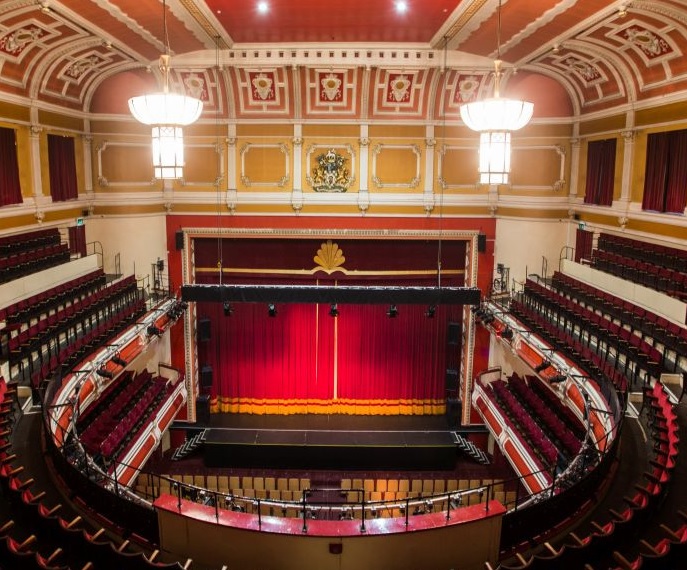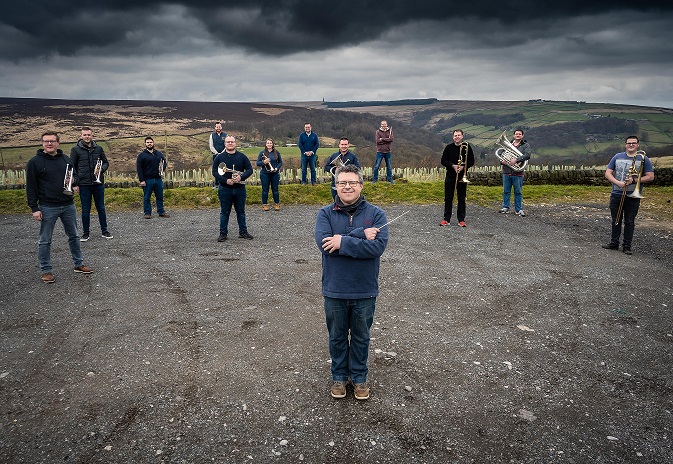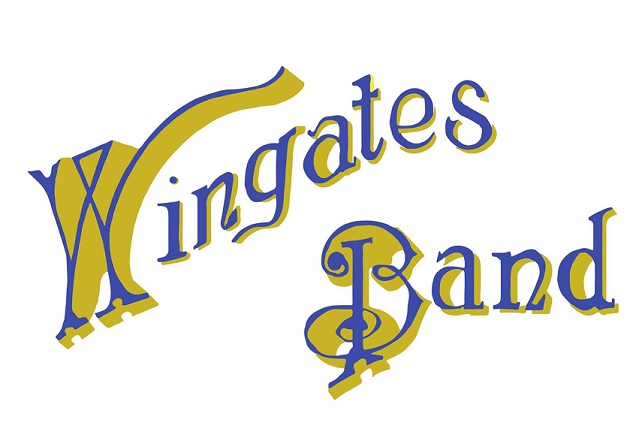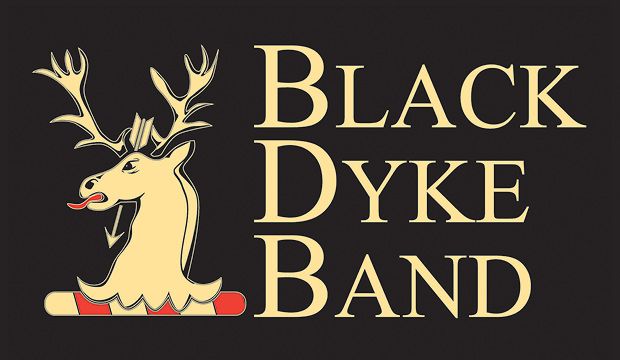
Victoria Hall in Halifax hosted the event
Persistence, tenacity and sheer bloody-mindedness can be essential characteristics required to overcome seemingly insurmountable challenges.
However, they are also ones that can on occasions lead to intransigence, misunderstanding and potential wilful ignorance.
Both came to mind at times at the ‘Best of Brass’ Festival event in Halifax on the weekend.
Echo chamber
Not surprisingly the echo chamber of social media ‘debate’ had a depressingly hollow sound of spiteful substance with opinions on who was to blame for Brighouse & Rastrick and Fairey withdrawing.
And whilst the arguments surrounding the alleged stipulations of the use of bell covers, and who imposed them on the bands for the event, will go on for some time yet, so should the opinions on the interpretations of what exactly constituted the precise meaning of the “use” of them by performers.
Not surprisingly the echo chamber of social media ‘debate’ had a depressingly hollow sound of spiteful substance with opinions on who was to blame for Brighouse & Rastrick and Fairey withdrawing.
It may be a question of linguistic semantics, but whilst the majority of players used them in what would be considered the correct manner, some took it to mean putting a slit in the cover to facilitate the use of mutes – therefore rendering them almost useless to do the job they were risk assessed to provide.
Some had more holes in their fabric than a stripper’s stockings.
Not envisaged
That was perhaps not as envisaged in the Risk Assessment undertaken by IBB Media using DCMS Performance Arts and Brass Bands England guidance (although there were rumours that verbal advice had later been given that slits could be cut) which was dated to 1st June to cover the event.
It is understood that this was received by the management at Victoria Theatre around Friday 18th June, and subsequently sent to the Council Public Health Department “for clearance”.
They believed that it was, in their words; “…based on the HMG published guidance for brass band events and guidance from Brass Band England and it was cleared by our Health & Safety Rep and then sent on to our Public Health department who agreed it based on what was in that Risk Assessment.”
They believed that it was, in their words; “…based on the HMG published guidance for brass band events and guidance from Brass Band England and it was cleared by our Health & Safety Rep and then sent on to our Public Health department who agreed it based on what was in that Risk Assessment.”
The IBB Media Risk Assessment was then sent to bands on June 26th stating that this was “…in line with Calderdale Council Public Health requirements.”
At the time of the actual event, DCMS Performance Arts and Brass Bands England guidance still recommended “to either use bell covers or erect screens between players”, and that, “Keeping the bell-cover on at all times is the safest option.”
Further confusion
All of which made for further confusion when on Friday 2nd July, IBB Media stated; “The stipulation from Calderdale Council that bell covers must be used stays in place despite tireless efforts from both the organisers and BBE in trying to get this decision overturned.
Alternative mitigations were put in place and presented including input from DCMS and Public Health England, and local MP Craig Whittaker, but no alternatives were accepted.”
That’s when everything and everyone started getting mired in ever more confusion.
So why was the IBB Media Risk Assessment, based on DCMS Performance Arts and Brass Bands England guidance (appropriate at the time of the event) and which had been given clearance by Calderdale Council, then being asked to be “overturned” less than 24 hours before the first band took to the stage?
So why was the IBB Media Risk Assessment, based on DCMS Performance Arts and Brass Bands England guidance (appropriate at the time of the event) and which had been given clearance by Calderdale Council, then being asked to be “overturned” less than 24 hours before the first band took to the stage?
And what were the “alternative mitigations” asked for by DCMS, Brass Bands England and the local MP that they wanted put in place? Wasn’t that flying in the face of what the DCMS and BBE guidance said was appropriate themselves?
Accusations of blame were being pointed in different directions. No wonder it was hard to make any sense of it at all - especially as there didn’t seem to be any clear indication either of what would happen to anyone who didn’t follow the Risk Assessment guidance (and some did) that was in place.
Matters little now
Perhaps it matters little now given the announcement of further relaxation in regulations and guidance due to come in on the 19th July in England – especially to those who held strong opinions on the validity let alone the effectiveness of using bell covers in the first place.
However, it simply added up to an avoidable mess that once again made banding look amateurish, even in the confines of our own musical isolation.
It also ensured that the time-table of performances had to be amended, so that the JSVB Legacy Band opened the festival, followed by Wingates, a recital from Tom Hutchinson, then Hammonds, and finally Black Dyke.
Hardy
Speaking to those in the small but hardy audience of around 100 or so people (socially distanced in a Covid restriction capacity of around 260 seats) that came as a surprise (there were no programmes or phone app to connect to the programmes performed), although once they had escaped the morning drizzle they soon warmed enthusiastically to the entertainment provided.
That was in no small part to the obvious persistence, tenacity and sheer bloody-mindedness of the performers.
That was in no small part to the obvious persistence, tenacity and sheer bloody-mindedness of the performers.
They provided sets delivered with dynamic thoughtfulness (muffled intonation was admirably kept in check) and variety that showed just what a greater opportunity to link to an even wider audience base (although the event was live-streamed to BrassPass.tv subscribers) had been missed by the litany of mixed messaging.
In addition, an excellent team ensured that Covid-19 cleaning requirements and social distancing rules were met in full (the staff at the hall were excellent, whilst Brass Bands England also provided staff to help with Track & Trace and lateral flow test requirements).
JSVB Legacy Band
The JSVB Legacy Band provided a display of polished purposeful from its new 'Saluting the Kings of Swing’ download album.
Led by David Thornton, it was high quality, precisely read brass band ensemble playing on repertoire ranging from Gordon Goodwin to Duke Ellington, expertly arranged by Kevin Holdgate and Reid Gilje, with some authenticly styled inserts by guest player George Hogg.
There was also a nice touch from the organisers in inviting past member of the original JSVB line-up to attend the event, including the great James Shepherd himself.
Hopefully, we will hear more from the ensemble in front of a larger audience.
Wingates
Wingates followed with an engaging set under Paul Andrews, featuring inventive compositions from composer Adam Taylor – the pick a musical birdsong gem, ‘Chant des Oiseaux'.
That was balanced against the vodka fuelled excitement of ‘Korobeiniki’ the clever ‘Millionaire Waltz’ and ‘The Ayres of Agincourt’ - a work to inspire any England team on an away ground fixture later that day.
That was balanced against the vodka fuelled excitement of ‘Korobeiniki’ the clever ‘Millionaire Waltz’ and ‘The Ayres of Agincourt’ - a work to inspire any England team on an away ground fixture later that day.
The centrepiece was a safely negotiated performance of ‘Fireworks’ added to with a sparkler ‘cameo’ narration contribution by Richard Evans, whilst Nicola Shaw was the classy flugel lead in ‘Dimitri’ and ensemble classic ‘The Girl with the Flaxen Hair’.
Tom Hutchinson
The undoubted highlight for many however was Tom Hutchinson’s recital, intuitively accompanied by pianist Ruth Hollick despite what was revealed to be an musical hiatus of 15 years from when they last played together.
Superbly delivered renditions of ‘Glorious Ventures’, ‘Brown Bird Singing’, ‘Jubilance’ and the Harry James ‘Trumpet Concerto’ showcased a cornet player of the very highest echelon.
Hammonds
There was much to admire with Hammonds (they took to the stage with a number of deps due to Covid isolation being observed), as Morgan Griffiths carefully calibrated the dynamic levels with an emphasis on clarity.
A sprightly ‘HMS Trinidad’ march was followed by the premiere of Wilfred Heaton’s ‘Pilgrim Variations’, with arranger Paul Hindmarsh setting the context and the band delivering a touching, melancholic performance that in a strange way was added to by the softly textured timbre of the bell covers.
A sprightly ‘HMS Trinidad’ march was followed by the premiere of Wilfred Heaton’s ‘Pilgrim Variations’, with arranger Paul Hindmarsh setting the context and the band delivering a touching, melancholic performance that in a strange way was added to by the softly textured timbre of the bell covers.
Helen Varley (one of the late deps) was a tender lyrical lead in ‘The Rowan Tree’ horn solo, and although Eric Ball’s ‘Resurgam’ was restrained (fate knocked with a little collective nervousness) the MD drew a lovely line of reflection.
They ended with a rousing romp through his own arrangement of the ‘Finale’ from ‘A New World Symphony’.
Black Dyke
That left Black Dyke to round things off in their own way (and not just musically it appeared).
Malcolm Arnold’s ‘Little Suite No 1’ was full of the requisite wit, tenderness and bombast (dedicated to former MD Geoffrey Brand), whilst Percy Fletcher’s ‘Andante & Scherzo’ padded from original quartet form to full band scoring by Dr Robert Childs was an elegant Edwardian time capsule.
Brett Baker’s performance of Philip Wilby’s baroque dance inspired ‘Light Fantastic’ was a canonical delight (given the inspiration) – all fleet footed intricacies and flexible jazz colours before they closed with ‘Cloudcatcher Fells’ which on occasions just bared its majestic teeth.
The organisers IBB Media had certainly shown the persistence, tenacity and sheer bloody-mindedness to put the event on, and deserved the plaudits given by a number of people from the stage.
Another risk assessment
It rounded off an enjoyable day of musical entertainment, aided by Covid compliance maintained by the excellent Victoria Hall staff and the mellow tones of compere Mark Goode.
The organisers IBB Media had certainly shown the persistence, tenacity and sheer bloody-mindedness to put the event on, and deserved the plaudits given by a number of people from the stage.
It was however also one that highlighted banding’s wider and more ingrained problems in overcoming our isolation from the wider general public - one that deserves its critical appraisal rather than meaningless congratulations of little lasting substance.
That in itself needs a Risk Assessment everyone can understand and adhere to.
Iwan Fox


















